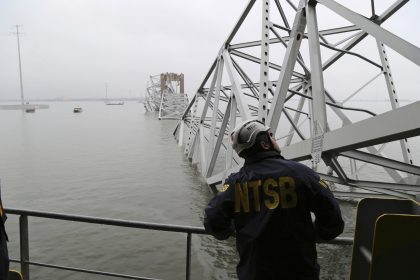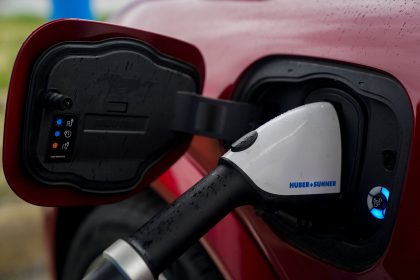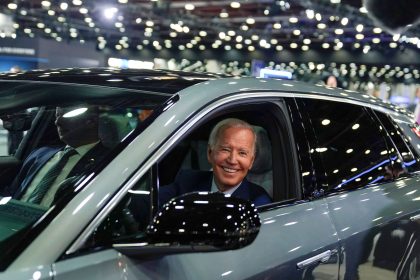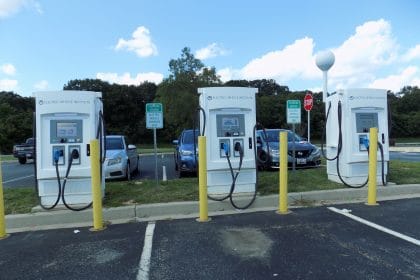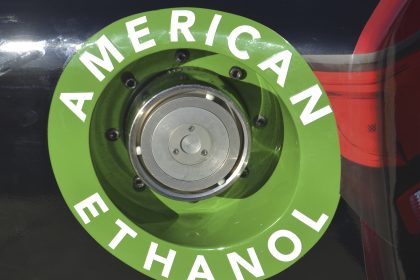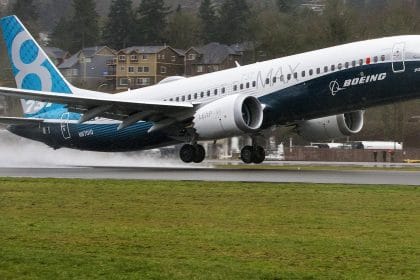Highway Safety Groups Call for Action on Impaired School Bus Drivers
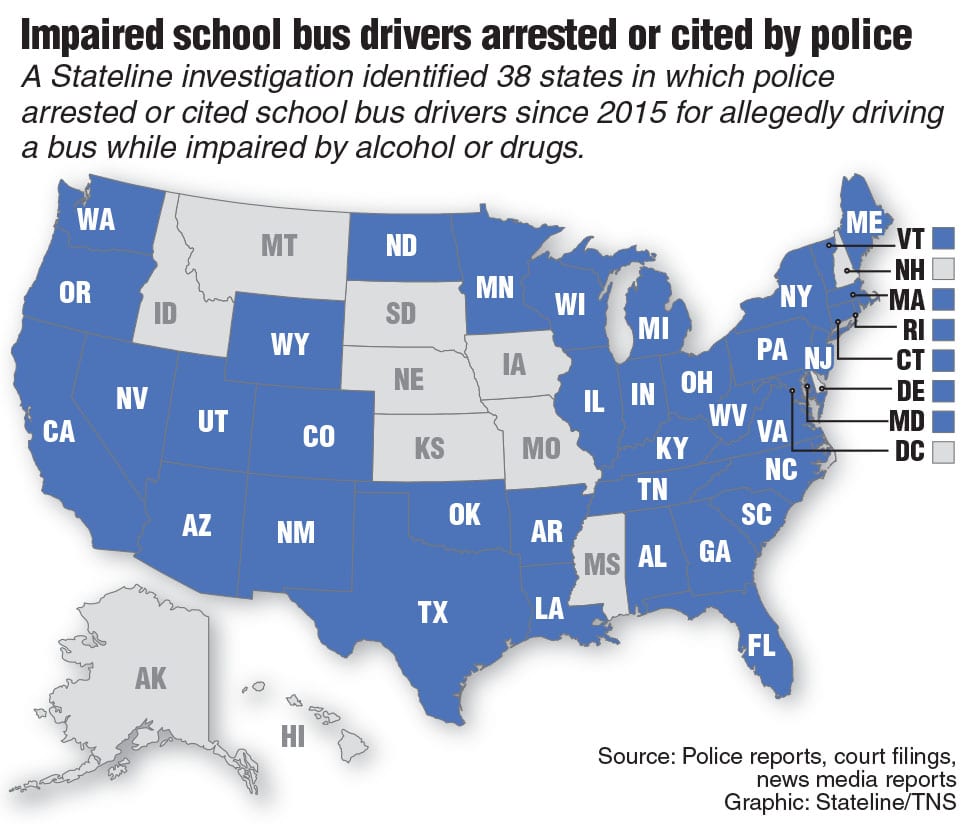
WASHINGTON — Two national highway safety groups are urging government officials to do more to prevent school bus drivers from getting behind the wheel while impaired by alcohol or drugs.
Responding to a recent Stateline investigation, the National Safety Council and Advocates for Highway and Auto Safety each are calling for changes that include beefing up oversight and putting alcohol detection systems in school buses.
Stateline found that more than 1,620 school children in 38 states have been placed in harm’s way since 2015 by school bus drivers arrested or cited for allegedly driving while impaired.
Police have caught at least 118 school bus drivers, and more than a third of the cases involved crashes, Stateline reported. Nearly three dozen children have been injured, some seriously.
No one at the state or federal level appears to track such cases. And many states don’t even know how many school bus drivers have failed random drug or alcohol tests. Stateline found at least 260 drivers in five states who had failed or refused such testing since 2015.
The National Safety Council, an Itasca, Ill.-based organization focused on eliminating preventable deaths, called the findings “unacceptable.”
“This report is like a canary in the coal mine. You have to respond,” said Maureen Vogel, the council’s spokeswoman. “It’s up to us to make sure there is a coordinated response. The council takes this very seriously.”
The group wants states to require ignition interlock technology on all school buses to prevent drivers from operating them with elevated blood alcohol concentration levels.
Legislators in New York and Rhode Island have introduced bills that would have required ignition interlocks on school buses, but they haven’t succeeded. In New York, opponents called the interlocks a “guilty until proven innocent” approach that also would be too costly and technically challenging.
The safety council also wants states to pass legislation that would prohibit school bus drivers from using alcohol at least eight hours before driving.
Under federal law, commercial drivers may not use alcohol within four hours of going on duty. Those drivers found to have any measurable amount of alcohol in their system must be placed “out of service” for 24 hours, which means they are not allowed to operate a commercial vehicle during that time.
The Federal Motor Carrier Safety Administration has set the blood alcohol threshold for driving under the influence at 0.04% for commercial drivers, including school bus drivers. States have established a 0.08% DUI standard for regular drivers, except Utah, where it is 0.05%.
The council also is urging school districts to embrace drug-free-workplace policies that educate employees — particularly supervisors — about the signs and symptoms of impairment and addiction. If supervisors spot something wrong, they can respond immediately, Vogel said.
“School bus drivers are safety-sensitive positions,” she said. “School districts should be empowered to set additional requirements, such as visual check-ins by supervisors.”
While federal regulations require that commercial drivers, including school bus drivers, be tested if there is “reasonable suspicion” they are using alcohol or drugs on duty, that relies on someone eyeballing the driver, which doesn’t always happen, Stateline found.
In large school districts with hundreds of buses, inspecting every driver would be difficult, and in some areas, particularly rural ones, drivers take their buses home.
Cathy Chase, president of Advocates for Highway and Auto Safety, a Washington, D.C.-based nonprofit alliance of health and safety groups and insurance companies, said Stateline’s findings have “brought much-needed focus to an issue which is likely underreported and in need of more careful scrutiny.”
The group is recommending that school buses be added to a bipartisan bill pending in Congress that would require new motor vehicles to be equipped with “advanced passive alcohol detection software,” technology that automatically detects whether drivers are intoxicated through their breathing or touch.
“If we get this technology into school buses,” Chase said, “there would be an added sense of security for parents that their children would be protected.”
Chase’s group also wants states, as soon as possible, to start using a new federal drug and alcohol clearinghouse that contains information about drivers with commercial licenses who have drug or alcohol testing violations and are not permitted to operate commercial vehicles.
Employers, including school districts, are required to submit to the clearinghouse information about drivers who fail or refuse drug or alcohol tests, whether during their pre-employment screening or after they are hired. They also must query the database for all current and prospective employees before allowing them to operate a commercial vehicle.
State driver licensing agencies will be required to query the clearinghouse to determine if a commercial driver has a history of failed tests, starting in 2023.
That’s not good enough, Chase said, adding that the federal government should not wait three years to require state participation.
“State agencies should be doing it for school bus drivers,” she said. “It’s an added assurance that they do not have a history of drug and alcohol violations. In other words, they (state driver licensing agencies) are doing their homework.”
Chase said her group also would like to see states collect data on impaired school bus drivers, which Stateline found is not being done.
“If the data is lacking, there should be more collected by the states,” she said, “so we can determine how significant of a problem this is.”
Every school day, about 480,000 buses carry more than 25 million students to and from school and other activities, such as sports events and field trips, according to Charlie Hood, executive director of the National Association of State Directors of Pupil Transportation Services.
School buses are the safest way for children to get to school — and it’s rare to find a school bus driver impaired while on duty, Hood said. But he noted that even one such case is “way too many.”
———
©2020 Stateline.org
Visit Stateline.org at www.stateline.org
Distributed by Tribune Content Agency, LLC.


















